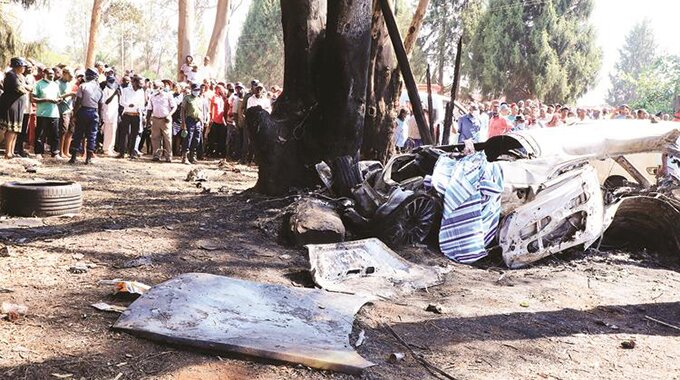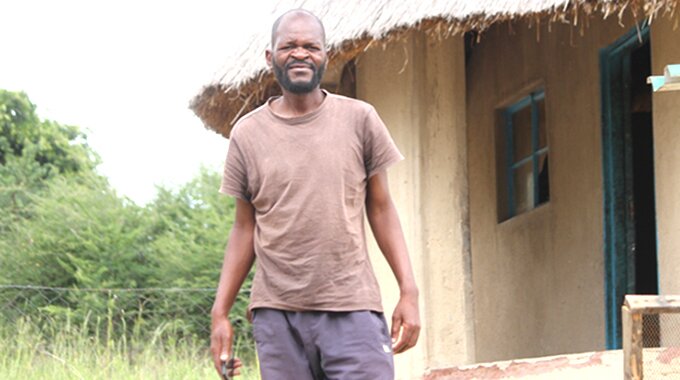The launch of the National Development Strategy 1 (NDS1) on Monday by President Mnangagwa marks the start of a far more exciting phase in Zimbabwe’s reform and development programme.
It builds on the ground clearance of the Transitional Stabilisation Programme (TSP, the necessary first step.
As anyone who has started farming former waste land or has built a house knows, before you can get down to the productive work, or until you can buy the bricks and start building, you have the backbreaking work of clearing the ground. And the last 25 months have been backbreaking as we cut away the brambles, dug out the roots of corruption and sloth, and generally cleaned up the mess and rubble inherited from the First Republic.
We found that mess was far worse than we had expected, but the TSP brought fiscal discipline, as for the first time in decades we had a Government determined to spend only what we paid in taxes, and even then adjusting the Budget so that taxes could start funding things like fixing our hospitals, schools and roads.
That fiscal discipline in turn allowed us to move through the monetary reforms, and again we had to fix more than we had feared. But we have now fixed that.
Advertisement
The final reform was moving away from allocation of foreign currency by fiat, that is bureaucrats deciding who got what at a fake price that we had been doing for more than half a century, to the market-driven auction system of the real world.
And that in turn has finally killed the inflationary pressures that sometimes we kept a lid on, as the pressure built up, and sometimes despite these efforts watched it boil over.
But we have done this, and now, as President Mnangagwa vividly put it, we can “roll our sleeves up” and build and produce and start creating real wealth, not the fake paper riches that have bedevilled our land for so long.
Because of TSP we are building on solid ground, not a swamp, and so our efforts will not be wasted and or just a mirage.
The NDS1 is not a detailed plan. Rather it is a map of how we move forward and how we can make sure that all the bits and pieces we need as we move forward are in place when they are needed. And at the same time, the strategy makes sure that we all benefit from this growth, so we move forward together, and that those who might be left behind can climb aboard the bus. At the same time, of course, we all want this to lead to a better country, not just a richer country, so that has to be included.
There are suggestions that development needs to have some items given more priority than others. This, at first glance, might seem sensible. But in practice you cannot separate out the bits of required development.
It is not much use getting farmers to grow a lot more if you do not at the same time make sure there is a road going past the farm so a truck can take the harvest to market. You cannot open new factories and new mines unless you have a trainable workforce, so you need to reform education, put in more technical colleges.
Businesses need rules — like pay taxes, pay at least the minimum wage and don’t dump waste — but the rules need to be simple and clear, so you need legal reform and a single centre for advice. This is why we needed an integrated strategy to map the development, so all the required bits are ready and present when needed. We have already done quite a bit on an ad hoc basis, in a sense as one-offs. So we not only put in schemes to fund inputs for farmers, but we learned, quite quickly, what changes we needed to fund farmers, rather than fund black market dealers.
We have already approved new mining investment, and figured out ways of ensuring existing investors have adequate security of resources without locking up half the country from competition.
But we need to automate these processes. We have started helping Zimbabwean youths and women to open their own businesses, have found what works and what does not, so we have the basis to build on the successes.
Advertisement
The development strategy draws all these bits and pieces, what we have learned to do and, just as important, what we have learned not to do, to ensure we do not build castles in the air, but build practical factories, mines and barns on the ground.
And we will continue learning. The strategy is not some biblical text carved in stone. If it is to work it must be a living document.
One critical point, as the President made clear, is that the actual development is not done by the Government. It is done by us, “rolling up our sleeves”. This is the practical reason for devolution. Of course most people and most communities want control of their lives, so devolution is important in that sense as well.
But economically it makes sense to assume that a person who lives in an area knows more about what they and their neighbours need and want than anyone sitting at a desk in Harare, and it also makes sure that those same communities become responsible for what they do and build.
The clinic, school, road, bridge, dam, borehole, solar power centre or the like was planned and built by them, with their share of the tax revenue admittedly, but it is theirs, not something dumped in their area by “them”.
The Government’s job is still important. The technocrats have to make sure that the stability and basic conditions for growth we have struggled to put in place are maintained and kept up to date. The right laws have to be in place, a process some feel takes too long, but to be fair, we need to replace bad laws with good laws and that means we have to make sure all affected have their input and the final result does not have a pile of loopholes the corrupt and power hungry can drive through.
Corruption was a cancer, and there are complaints that it takes too long to jail the guilty, but we need a country where even criminals can have a fair trial. But at the same time we need to make it as near impossible as we can that no one else steals the fruits of labour. And as has been stressed we need to advance in step. This is why the Cabinet has to monitor progress closely and make sure that if some sector is falling behind, or a bunch of officials is drinking tea rather than fixing a problem, or a group of private developers are going off the rails, that the necessary remedial action is taken promptly.
It is not that simple to double the wealth of a country, make sure that everyone who contributes to the doubling gets a fair share, and make sure that those who have vulnerabilities get a fair chance, and that no one, like the elderly or the infirm, is left behind in dire poverty.
That is another reason why we have a plan, and why the Government needs to be active, but at the same time we need to remember it is our plan, not the Government’s plan, built on the input of many people. And in the end it is us who implement it, and us and our families who benefit.
We have cleared the bush. Now let us build.
Advertisement
– HERALD








